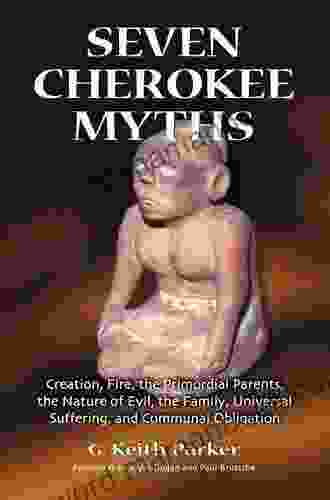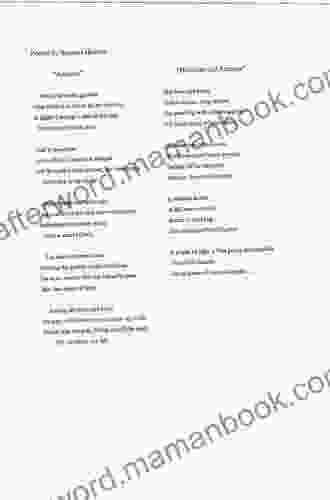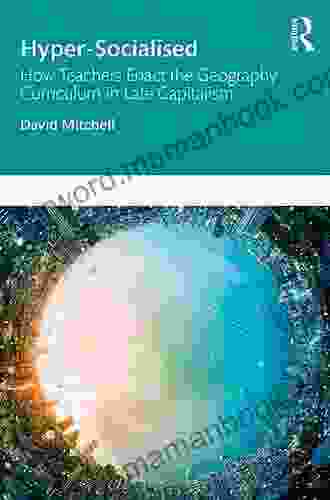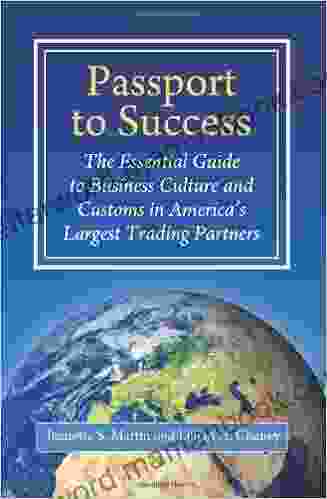How Teachers Enact the Geography Curriculum in Late Capitalism

This article explores how teachers enact the geography curriculum in late capitalism, arguing that the curriculum is shaped by the dominant ideologies and power structures of society. The article draws on critical geography theory and qualitative research to examine how teachers' practices and experiences are influenced by the commodification of education, the rise of standardized testing, and the increasing emphasis on economic competitiveness.
The geography curriculum is a contested space, shaped by the dominant ideologies and power structures of society. In late capitalism, the curriculum has become increasingly commodified, standardized, and marketized, reflecting the broader shift towards a neoliberal economic and political order. This article explores how teachers enact the geography curriculum in this context, drawing on critical geography theory and qualitative research to examine how their practices and experiences are influenced by these broader societal trends.
Critical geography theory provides a framework for understanding the ways in which the geography curriculum is shaped by power relations and social inequalities. Critical geographers argue that the curriculum is not neutral, but rather reflects the interests of the dominant social groups and serves to reproduce existing social structures. In late capitalism, the curriculum has become increasingly commodified, as education has been transformed into a market-based system in which students are seen as consumers and schools are seen as businesses. This commodification of education has led to a narrowing of the curriculum, as schools focus on teaching only those skills and knowledge that are seen to be directly relevant to the job market.
5 out of 5
| Language | : | English |
| File size | : | 4286 KB |
| Text-to-Speech | : | Enabled |
| Screen Reader | : | Supported |
| Enhanced typesetting | : | Enabled |
| Word Wise | : | Enabled |
| Print length | : | 206 pages |
Standardized testing has also played a significant role in shaping the geography curriculum in late capitalism. Standardized tests are used to measure students' achievement and to hold schools accountable for their performance. However, critics argue that standardized tests are biased against certain groups of students, such as students from low-income families and students of color. This bias has led to a narrowing of the curriculum, as teachers focus on teaching only those skills and knowledge that are tested.
The increasing emphasis on economic competitiveness has also influenced the geography curriculum in late capitalism. In a globalized economy, countries are competing for jobs and investment, and this competition has led to a focus on education as a means of economic development. As a result, the geography curriculum has become increasingly focused on teaching students about the global economy and how to compete in it.
This article draws on qualitative research to examine how teachers enact the geography curriculum in late capitalism. The research was conducted in two phases. In the first phase, I interviewed 20 geography teachers from a variety of schools in the United States. The interviews explored teachers' experiences with the geography curriculum, their perceptions of the changes that have taken place in the curriculum over time, and their views on the role of geography education in late capitalism. In the second phase, I conducted participant observation in three geography classrooms. The observations focused on teachers' teaching practices and interactions with students.
The findings of the research reveal that teachers' enactment of the geography curriculum is shaped by a number of factors, including the commodification of education, the rise of standardized testing, and the increasing emphasis on economic competitiveness.
The Commodification of Education
The commodification of education has led to a narrowing of the geography curriculum, as schools focus on teaching only those skills and knowledge that are seen to be directly relevant to the job market. This has resulted in a decline in the teaching of critical geography, which seeks to challenge the dominant narratives about the world and to empower students to make informed decisions about their lives.
The Rise of Standardized Testing
Standardized testing has also had a significant impact on the geography curriculum. Teachers are under pressure to teach only those skills and knowledge that are tested, which has led to a narrowing of the curriculum and a focus on rote learning. This has made it difficult for teachers to teach critical geography, which requires students to think critically about the world around them.
The Increasing Emphasis on Economic Competitiveness
The increasing emphasis on economic competitiveness has led to a focus on teaching students about the global economy and how to compete in it. This has resulted in a shift away from teaching about the environment and social justice, which are seen as less important to economic development.
The findings of this research suggest that the geography curriculum is shaped by the dominant ideologies and power structures of late capitalism. The commodification of education, the rise of standardized testing, and the increasing emphasis on economic competitiveness have all led to a narrowing of the curriculum and a focus on rote learning. This has made it difficult for teachers to teach critical geography, which is essential for empowering students to make informed decisions about their lives.
This article has explored how teachers enact the geography curriculum in late capitalism. The findings of the research suggest that the curriculum is shaped by the dominant ideologies and power structures of society. The commodification of education, the rise of standardized testing, and the increasing emphasis on economic competitiveness have all led to a narrowing of the curriculum and a focus on rote learning. This has made it difficult for teachers to teach critical geography, which is essential for empowering students to make informed decisions about their lives.
- Apple, M. W. (2004). Ideology and curriculum. Routledge.
- Giroux, H. A. (2003). The terror of neoliberalism: Authoritarianism and the eclipse of democracy. Paradigm Publishers.
- Harvey, D. (2007). A brief history of neoliberalism. Oxford University Press.
- hooks, b. (2003). Teaching to transgress: Education as the practice of freedom. Routledge.
- Kincheloe, J. L., & Steinberg, S. R. (2004). The miseducation of America: From the silent pedagogy to the electronic miseducation. Routledge.
- McLaren, P. (2005). Capitalists and conquerors: A critical pedagogy against empire. Routledge.
- Smith, N. (2008). Uneven development: Nature, capital, and the production of space. Routledge.
5 out of 5
| Language | : | English |
| File size | : | 4286 KB |
| Text-to-Speech | : | Enabled |
| Screen Reader | : | Supported |
| Enhanced typesetting | : | Enabled |
| Word Wise | : | Enabled |
| Print length | : | 206 pages |
Do you want to contribute by writing guest posts on this blog?
Please contact us and send us a resume of previous articles that you have written.
 Top Book
Top Book Novel
Novel Fiction
Fiction Nonfiction
Nonfiction Literature
Literature Paperback
Paperback Hardcover
Hardcover E-book
E-book Audiobook
Audiobook Bestseller
Bestseller Classic
Classic Mystery
Mystery Thriller
Thriller Romance
Romance Fantasy
Fantasy Science Fiction
Science Fiction Biography
Biography Memoir
Memoir Autobiography
Autobiography Poetry
Poetry Drama
Drama Historical Fiction
Historical Fiction Self-help
Self-help Young Adult
Young Adult Childrens Books
Childrens Books Graphic Novel
Graphic Novel Anthology
Anthology Series
Series Encyclopedia
Encyclopedia Reference
Reference Guidebook
Guidebook Textbook
Textbook Workbook
Workbook Journal
Journal Diary
Diary Manuscript
Manuscript Folio
Folio Pulp Fiction
Pulp Fiction Short Stories
Short Stories Fairy Tales
Fairy Tales Fables
Fables Mythology
Mythology Philosophy
Philosophy Religion
Religion Spirituality
Spirituality Essays
Essays Critique
Critique Commentary
Commentary Glossary
Glossary Bibliography
Bibliography Index
Index Table of Contents
Table of Contents Preface
Preface Introduction
Introduction Foreword
Foreword Afterword
Afterword Appendices
Appendices Annotations
Annotations Footnotes
Footnotes Epilogue
Epilogue Prologue
Prologue Abigail Wild
Abigail Wild Lisa Shea
Lisa Shea Thomas F Cash
Thomas F Cash Michelle Jaffery
Michelle Jaffery Derek Miller
Derek Miller Thomas Perry
Thomas Perry Edugorilla Prep Experts
Edugorilla Prep Experts David Mitchell
David Mitchell Jane Ziegelman
Jane Ziegelman Ivna Reic
Ivna Reic Daniel Zingaro
Daniel Zingaro Molly Green
Molly Green Orison Swett Marden
Orison Swett Marden Stephanie Foo
Stephanie Foo William R Miller
William R Miller Peggy Collins
Peggy Collins J Callous
J Callous Amir Hegazi
Amir Hegazi Jordan Taylor
Jordan Taylor Phil O Viljoen
Phil O Viljoen
Light bulbAdvertise smarter! Our strategic ad space ensures maximum exposure. Reserve your spot today!

 Edgar HayesCreation Fire: The Primordial Parents, the Nature of Evil, and the Universal...
Edgar HayesCreation Fire: The Primordial Parents, the Nature of Evil, and the Universal... Hugh ReedFollow ·2.7k
Hugh ReedFollow ·2.7k Miguel de CervantesFollow ·4.1k
Miguel de CervantesFollow ·4.1k Giovanni MitchellFollow ·13.2k
Giovanni MitchellFollow ·13.2k Alex FosterFollow ·12.6k
Alex FosterFollow ·12.6k John ParkerFollow ·6.8k
John ParkerFollow ·6.8k Ian MitchellFollow ·8.9k
Ian MitchellFollow ·8.9k Milan KunderaFollow ·18.9k
Milan KunderaFollow ·18.9k Rick NelsonFollow ·17.1k
Rick NelsonFollow ·17.1k

 Bryce Foster
Bryce FosterViolin Is Easy: A Comprehensive Guide for Beginners
The violin is a...

 Cristian Cox
Cristian CoxThe True Story Of The Ivy League Cowboys Who Raided The...
In the early 2000s, a group of Ivy League...

 Ken Follett
Ken FollettUnraveling the Enchanting World of Menewood: A...
Embark on an enthralling...

 Phil Foster
Phil FosterNorth Poems by Seamus Heaney: An Exploration of Place,...
Seamus Heaney's North...

 Jack Butler
Jack ButlerFleeting Encounters: The Enigmatic Transience of Maria...
In the annals of literary history, fleeting...

 Eliot Foster
Eliot FosterA Haiku Summer: Capturing the Essence of the Season in...
Summer is a time of warmth,...
5 out of 5
| Language | : | English |
| File size | : | 4286 KB |
| Text-to-Speech | : | Enabled |
| Screen Reader | : | Supported |
| Enhanced typesetting | : | Enabled |
| Word Wise | : | Enabled |
| Print length | : | 206 pages |










